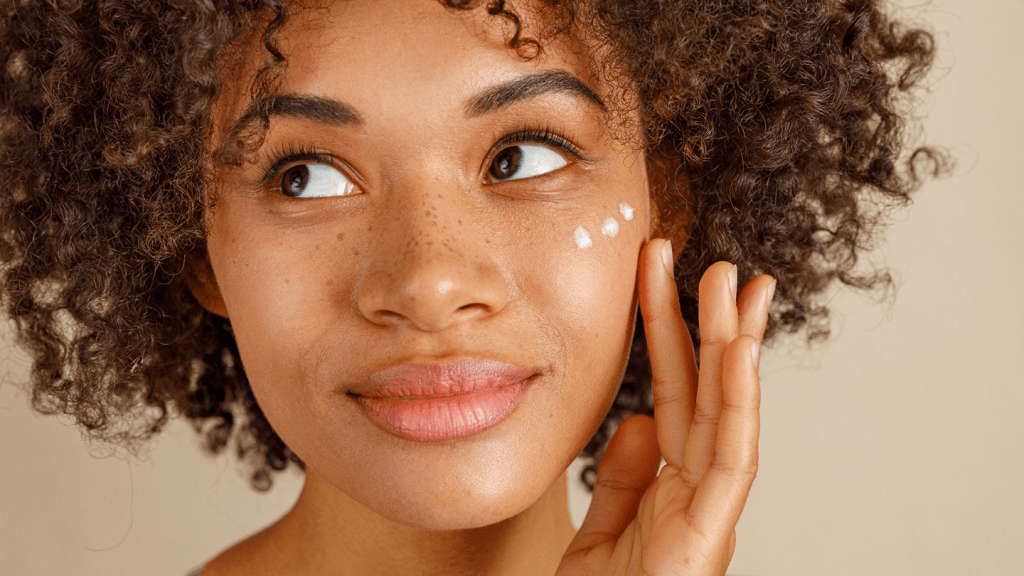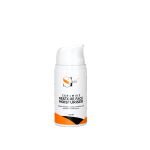Vitamin A is an essential nutrient for our bodies, and it also happens to be great for our skin! Vitamin A is the main ingredient in many skincare products, including retinoids and retinol
Retinoids are a type of vitamin A that help to improve the appearance of fine lines, wrinkles, and uneven skin tone. Retinoids can be found in both over the counter and prescription skincare products. Retinols are also a type of vitamin A that helps to reduce the appearance of fine lines, wrinkles, and uneven skin tone.
The term “Retinoid” is essentially a basic umbrella term for both over-the-counter retinol and prescription retinoids. Oftentimes the words “retinol” and “retinoids’ ‘ are used interchangeably however it’s important to understand that these are not the same. While there is the standard class of retinoids, there is also a wide range of ingredients including retinol, retinoic acid, retinal, adapalene, tretinoin and more, however they all work in slightly different ways.
𝐑𝐄𝐓𝐈𝐍𝐎𝐈𝐂 𝐀𝐂𝐈𝐃
The active agent in retinols and retinoids is retinoic acid. Retinoic acid is the agent that is responsible for increasing cell turnover within the skin. Retinols undergo many changes to their formulation in order to become the finalized retinoic acid, whereas retinoids are converted to retinoic acid, this makes retinoids have a faster delivery and far more potent than standard over-the-counter retinol treatments.
𝐑𝐄𝐓𝐈𝐍𝐎𝐋
Retinols convert on the cellular level of the skin and require conversion by human keratinocytes to retinoic acid to achieve their results. They contain less retinoic acid and are a less intense form of retinoids, which is why they’re available over the counter. Percentages for these ingredients are higher, often at 0.1%, 0.5%, and 1%, with 2% being the highest percent available over-the-counter without a prescription.
𝐑𝐄𝐓𝐈𝐍𝐎𝐈𝐃𝐒
Retinoids have a much higher concentration of the active ingredient and are available through prescription only. Tretinoin, Retin-A, and Retinoic Acid are interchangeable names for the prescription-only class of topical retinoid. It is available in creams or gels and with percentages ranging of 0.025%, 0.05%, and 0.1%. This is the strongest topical retinoid as it is already the retinoic acid that cells process. It gets straight to work stimulating healthy new cells and begins the process rather than the gradual transformation that over-the-counter retinols offer.
𝐀𝐃𝐀𝐏𝐀𝐋𝐄𝐍𝐄
Adapalene is targeted more towards acne treatment than as an anti-aging treatment such as those mentioned above. Adapalene targets breakouts by regulating cell turnover in the follicles within the skin to prevent clogged pores and an excess of dead skin cells within those pores. It then prevents inflammation that is triggered by said clogged follicles.
𝐈𝐒𝐎𝐓𝐑𝐄𝐓𝐈𝐍𝐎𝐈𝐍
Isotretinoin is the ingestible form of vitamin A most commonly known as Accutane. Prescribed specifically for severe acne, it requires ongoing appointments with a dermatologist and is typically used for 4 to 6 months as one course of treatment. Accutane should not be used unless all other options have been attempted first.
𝐖𝐇𝐄𝐑𝐄 𝐓𝐎 𝐁𝐄𝐆𝐈𝐍
If you’re new to retinoids, it may be ideal to begin with over-the-counter retinols depending on your individual circumstances. Taking your skin type and sensitivity into account is absolutely paramount. Regardless of your circumstances, when starting any retinoids the key is introducing low and slow and gradually increasing your usage as well as your percentage.
𝐑𝐄𝐓𝐈𝐍𝐈𝐙𝐀𝐓𝐈𝐎𝐍
When beginning retinoids, it is not uncommon that you may experience the Retinization stage. Retinization is the period when beginning retinoids as the skin is adjusting to the treatment.
Generally during this period you may experience redness, burning, peeling and possibly even scaling. This period may last for 7 to 30 days. Please be aware that while this is part of the Retinization stage and is considered normal, these are not indicators of the product “working”, these are indicators of irritation. If you experience this irritation, it is recommended to decrease your usage as the skin is adjusting. If after you decrease usage and find that you are still experiencing this irritation, it may be ideal to opt for a lower percentage or discontinue usage.
𝐒𝐔𝐍 𝐒𝐄𝐍𝐒𝐈𝐓𝐈𝐕𝐈𝐓𝐘
When it comes to using retinoids, your sensitivity to the sun will become increased. It is absolutely paramount that you are wearing proper sun protection every single day and only utilizing your retinoid at nighttime.




